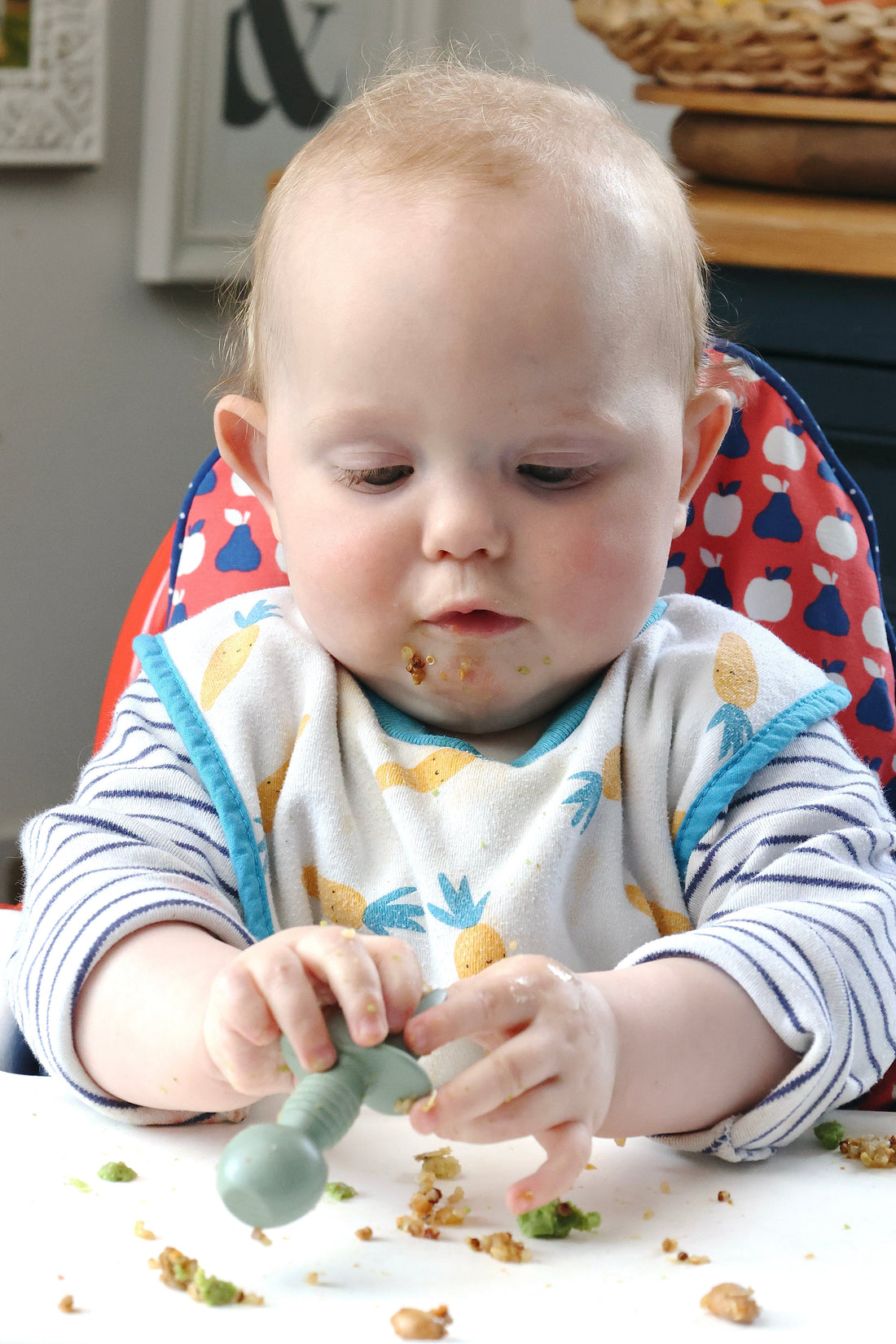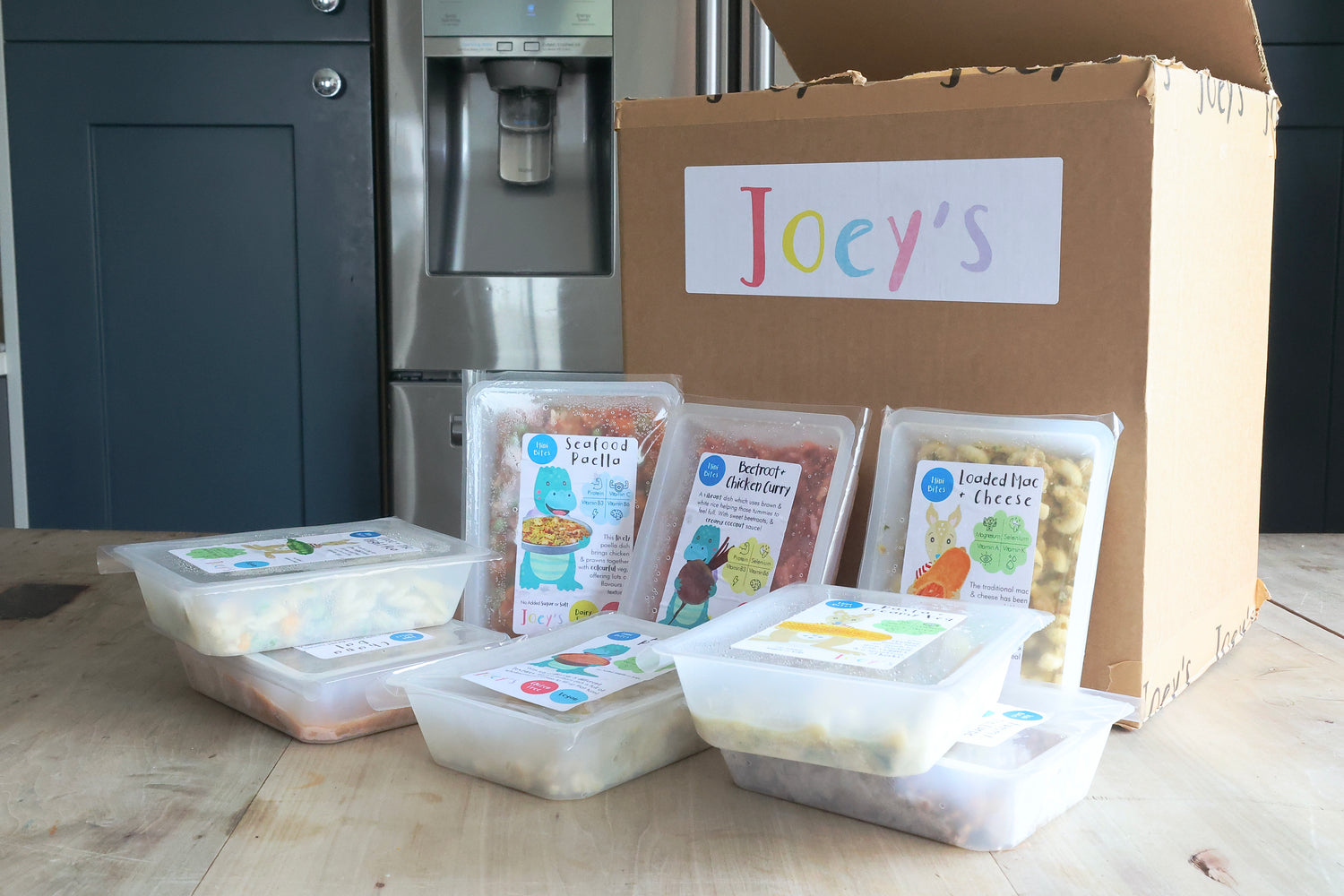
Preparing for Weaning: Practical Tips & Mental Preparation
Weaning is a significant milestone in your baby’s development & it’s natural to feel both excited & a bit overwhelmed. From the practicalities of choosing the right equipment to the mental preparation required, there’s a lot to consider. This guide will walk you through the essentials, helping you feel ready for this new chapter.

The Practical Guide to Weaning Essentials
· High Chair: Invest in a sturdy high chair that provides proper support for your baby. It’s the centerpiece of mealtime and should be safe and comfortable.
· Water Cup: Start with a cup that has a lid and straw to make it easier for your baby to drink independently. As they grow, you can remove the lid and transition to a regular cup.
· Plates & Bowls: A non-breakable plate or bowl with a suction pad can help prevent spills, but it’s not essential. Be prepared for the occasional floor drop!
· Cutlery: Opt for silicone or wooden cutlery, which is gentle on your baby’s gums. Mini forks & spoons are great for helping your baby learn to feed themselves.
· Bibs: Choose between sleeved bibs or simple neck bibs, depending on the day’s mess potential. In a pinch, a muslin cloth tied around their neck works just fine.
· Puree Tools: If you’re making purees, a fork or potato masher will do the job. However, a hand blender can be a real time-saver & you don’t need to splurge—budget-friendly options work just as well as high-end ones.

Mental Preparation: Setting the Right Expectations
Weaning is more than just introducing solid foods; it’s a developmental milestone that can bring up a lot of emotions. Here’s how to prepare yourself mentally for the journey ahead:
· Embrace the Mess: Weaning can get messy - embrace it! Lower your standards for cleanliness during this phase & remind yourself it’s only temporary.
· Understand Gagging vs. Choking: Gagging is a natural reflex & a sign that your baby’s learning to manage food. While it can be alarming, it’s actually a good thing. Stay calm, reassure your baby & know that gagging is different from choking.
· Be Prepared for Choking: Knowing what to do if your baby chokes will give you confidence. Watch videos like the British Red Cross tutorial on YouTube, or take a baby first aid course.
· Check for Family Allergies: If there’s a history of allergies, eczema, or asthma in your family, your baby might be more prone to food allergies. However, if you ate a wide variety of foods during pregnancy, including common allergens, your baby is off to a good start.
· Invite Support: If you’re feeling nervous, invite a friend or family member to join you during mealtime. A little moral support can go a long way.
· Introduce New Foods in the Morning: Morning is an ideal time to introduce new foods, as you’ll have the whole day to monitor your baby for any reactions.
· Be Prepared for Allergens: If you’re particularly worried about introducing allergenic foods, there’s no harm in doing so near a hospital for peace of mind. You’re close to help if needed.
Starting the weaning journey is a big step, but with the right information & support, you can make it a smooth & enjoyable experience for both you & your baby. Remember, patience & persistence are key - every baby is different & it’s all about finding what works best for you & your little one. Happy weaning & if you need any support, we are happy to help.
Libby


